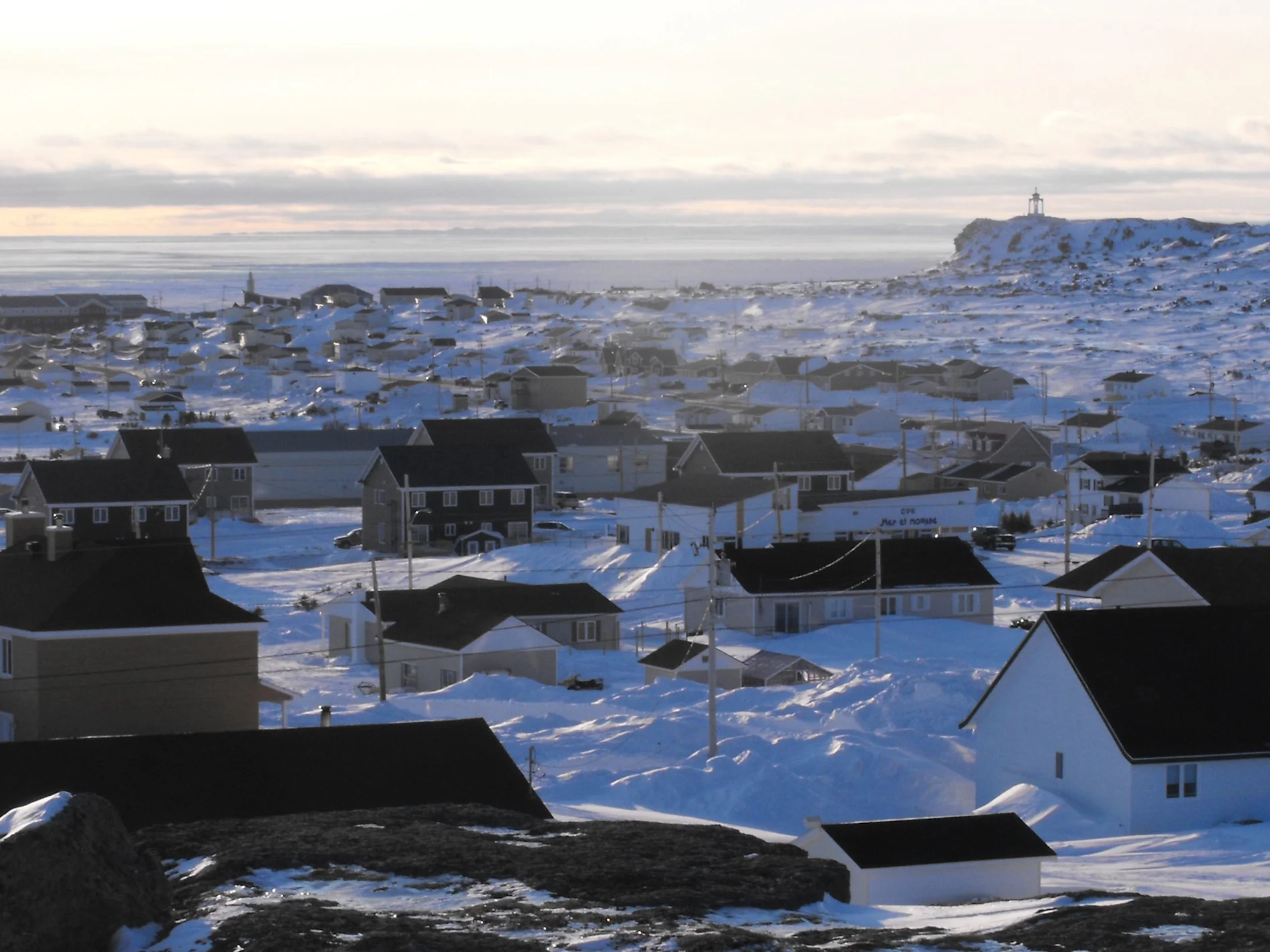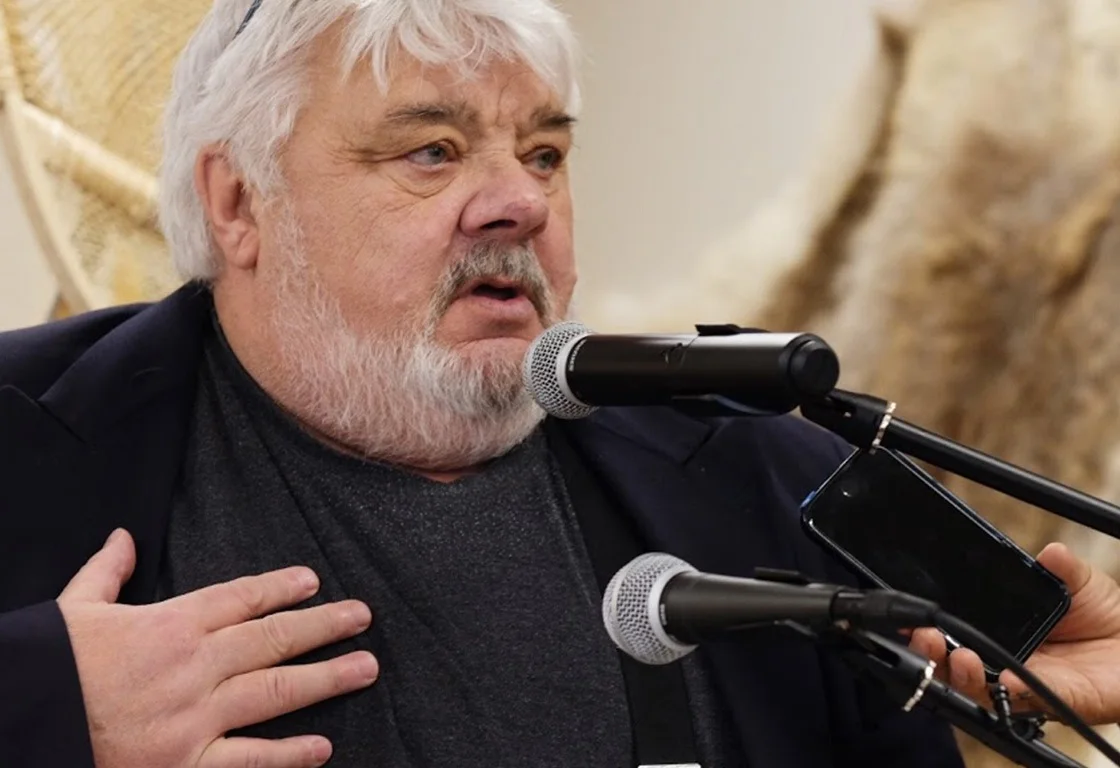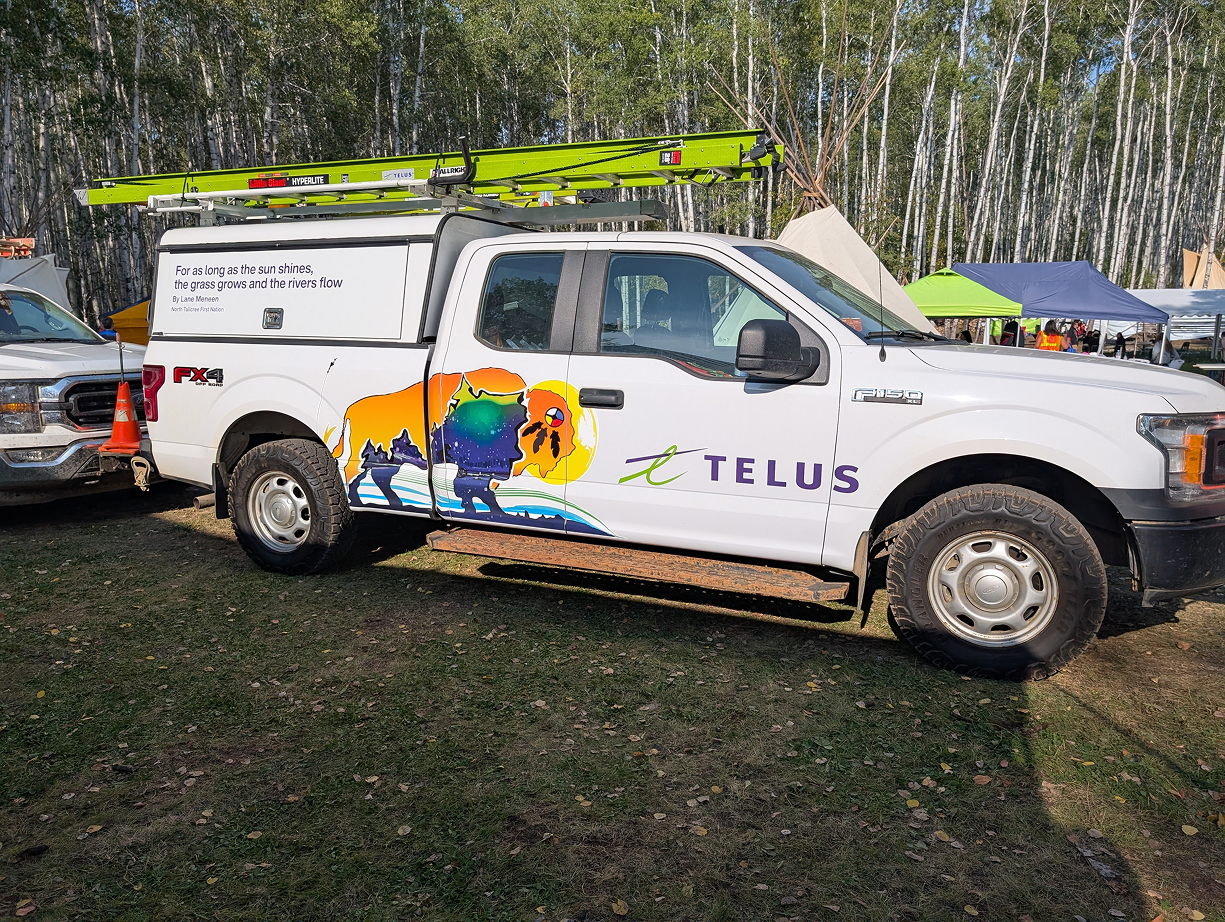
Connecting Canada
Building a digital road to Quebec’s Lower North Shore
Jan 27, 2020
It’s early on a chilly morning in Blanc-Sablon, Quebec as TELUS technician Dany Gaudreault hops on his snowmobile, his equipment firmly tied to a sled behind it, and readies himself for his scheduled round of network maintenance and installation work along the province’s vast Lower North Shore.
The day’s travel will take him about 400 kilometres along the iconic snow-covered trail known as the Route Blanche, passing through some of the most remote villages in Canada, where residents speak sometimes French, sometimes English, or Innu.
The region is so remote, some of its residents, known as Coasters, live much the same way as they did 50 years ago. Many fish for their dinner in the lake, and drink oxygen-rich water straight from pure, glacier waters that flow into town from the straits of Belle Isle.
It’s just another day on the job for Gaudreault. Until recently, just a few residents here have been able to access limited Internet, so he’s been making the journey almost every two weeks during the winters for the last five years in an effort to ensure they stay connected through a land-line phone service.

That routine is changing, though, as TELUS moves ahead with an ambitious plan to deploy high speed Internet and wireless phone service in the region. The $23 million telecommunications project -- a collaboration with the federal and provincial governments -- promises to be life-changing for Coasters. After a lifetime of limited tools for modern communication and tech advancements, many here are eager to usher in a new era of connectivity, bringing with it fresh hope for families, friends and neighbours to participate in the digital age, while staying grounded in vital cultural traditions.
“This project is important to us. It will improve many little things in our lives, but, all together, it will also do great things,” says Randy Jones, mayor of Gros Mecatina and prefect of the Golfe-du-Saint-Laurent regional community municipality, the government body that oversees the territory. “Technology will open the doors of knowledge, with access to the Internet and reliable sources. It brings security, frees up time spent waiting to connect for business or with our loved ones, and the opportunities in health and education are incredible.
“The sky’s the limit for us.”
Closing the digital divide
Senior TELUS team members first visited the Lower North Shore in 2018 to present the high-speed project to locals, and learned firsthand of the hardships stemming from a lack of reliable connectivity.
“I met people who had to abandon school to take care of a sick family member as the lack of quality Internet service didn’t allow them to pursue their education. Businesses are also struggling to establish a web presence without connectivity,” says Marie-Christine D’Amours, TELUS vice president, consumer and small business solutions and Quebec customer experience.
From his own experience, Jones says the digital divide between the region and the rest of Canada has directly contributed to a decline in the local population, threatening the continuation of the Coaster way of life.
“Our young people are leaving us because, without technology, they can’t continue their education and don’t have the same chances to succeed in a digital world,” he says.
Critically, people’s lives have been put at risk.
“Our nurses often have to resort to landlines to get in contact with a doctor as part of their daily caregiving routines, because those doctors are hundreds of kilometres away in Blanc Sablon,” says Jones.
Fortunately, all that is becoming a thing of the past. As of November 15, some of the villages located between Blanc-Sablon and Pakua Shipu are connected to newly installed wireless networks, and a high-speed Internet network is expected to be deployed to the entire region by the end of 2020—a full year ahead of schedule.
“That means, for the first time, Coasters can take advantage of Internet speeds normally only available to those in urban areas, and stay connected at home, at work and on the go,” says D’Amours.
An impressive feat of technology
For TELUS, ensuring that one of the most remote areas of the country has access to the same world-class connectivity as Canada's largest cities is no small feat. Indeed, the ongoing work represents one of the company’s “most remote and ambitious projects north of the 49th parallel,” according to Francois Gratton, TELUS group president and chair of TELUS Québec.
The solution draws on LTE Advanced wireless technology, supported by a hybrid backbone infrastructure that combines lightning-fast fibre optics and one of the largest microwave radio systems in the world. The technology maximizes the reach and capacity of the high-speed signal, and boosts -- by as much as 40-fold -- the available bandwidth. It’s one of the many ways TELUS is leveraging the power of technology to help bridge the digital divide and ensure that all Canadians, regardless of their location or circumstance, are connected to the technology and resources they need to succeed and thrive in today’s digital society.

The ability to partake in some of the fastest wireless connectivity available in the world today is welcome in the small Innu community of Pakua Shipu, where traditional activities like fishing, hunting and production of handcrafted items are still a vital part of residents’ lives. More importantly, young people need technology to continue their schooling without having to leave the community. (Photo by André Rainville)
The network upgrades promise a multitude of possibilities for the region, including empowering local businesses to market and sell products and services across the Internet; enabling better health outcomes for Coasters through real-time, remote connections to medical specialists; and improving schooling opportunities by linking young people with online courses anywhere in the world. Critically, network enhancements will also boost the capacity of emergency services to respond quickly when a local resident comes face to face with a bear or a fisherman finds himself in bad weather and in need of immediate help.
But geography has proven to be a major challenge: There are no roads to speak of. As one of the least populated regions in all of Canada, the area is vast and remote. Its residents make up fewer than 5,000 residents across 400 kilometres in Quebec’s extreme eastern region.
All the equipment needed for the build must be brought in by helicopter or by boat, with ground teams borrowing from the traditions of locals and relying on all-terrain vehicles and snowmobiles (depending on the season) to get to where they need to go.
Government policies have made the digital divide in Canada worse, leaving some rural Canadians without optimal internet. You can help change that.
Harnessing opportunity
The ease of connection to people, services and resources enabled by such a major network upgrade is not lost on Coasters.
“Our first access road will be a digital one,” says Jones.
For Pakua Shipu band council Director Mary Mark, the ability to partake in some of the fastest wireless connectivity available in the world today is welcome in this small Innu community, where traditional activities like fishing, hunting, and production of handcrafted items are still a vital part of residents’ lives.
“Our council had hit a wall,” she says of the need for change. “We couldn’t move forward with our ambitions. We needed Internet access to build a future-oriented strategy that would encourage virtual communications with other aboriginal communities.”
With high-speed connectivity, new talent will be attracted to the region, as people here can easily stay connected with loved ones far away.
“My wife used to spend a whole night downloading a few-second video of our grandkids,” says Jones. “But now, we’ll be able to celebrate each one of their birthdays in real-time.”
Ultimately, though, people here are hopeful the new connectivity will strengthen their communities as they move with confidence into the future.
“Against all odds and a tough environment, Coasters have survived thanks to their solid connections to one another,” says Jones. “It's now up to us to seize the opportunities of high-speed Internet so that we can prosper and share the beauty of our home with the entire world.”
Explore similar articles

Help support rural Canadian connectivity
Better government policies are needed to help rural Canadians gain access to high speed internet.
Speak up

